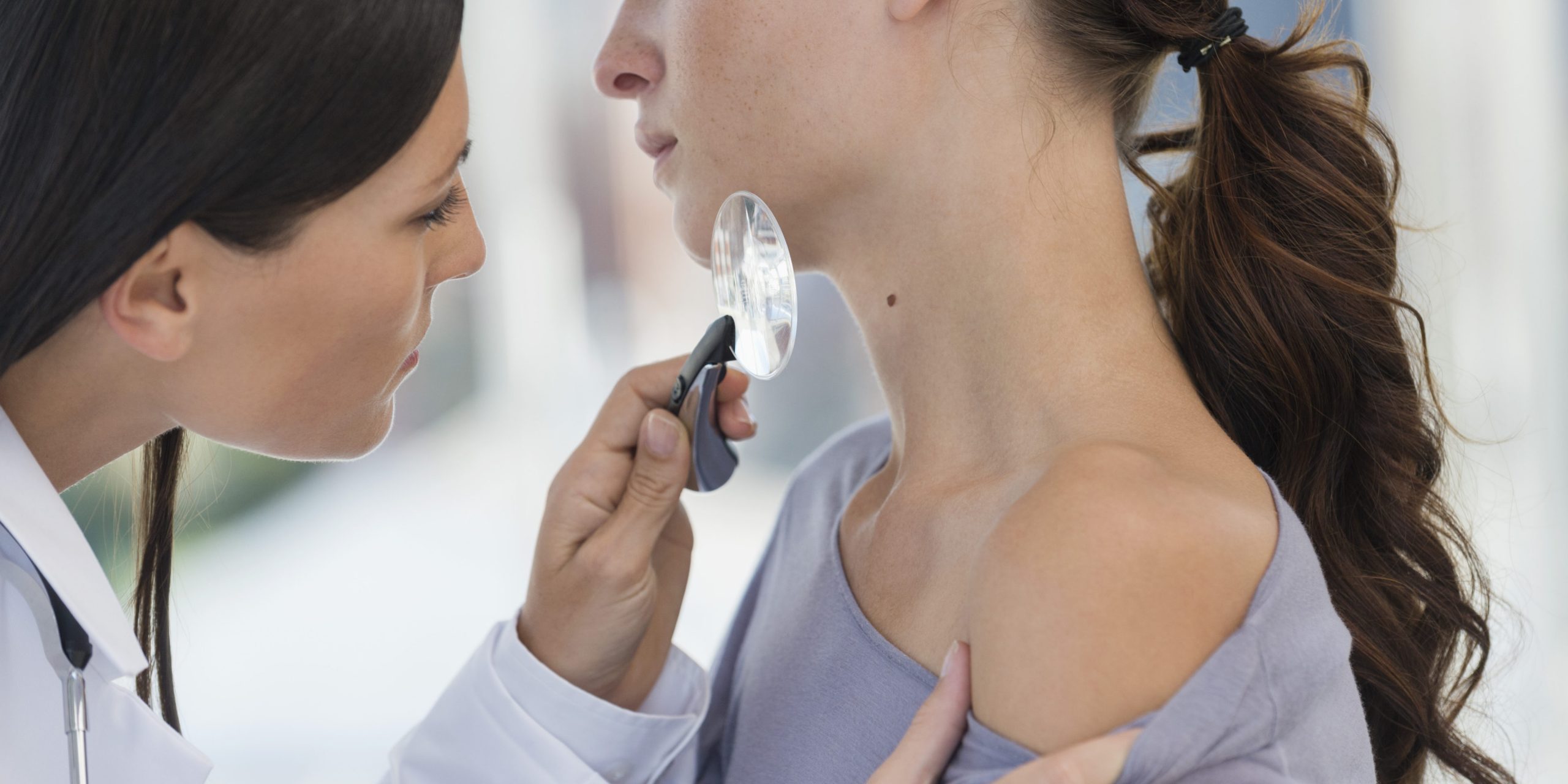All Australians are at risk of skin cancer due to extreme exposure to the sun’s harmful UV rays. Skin cancer, if detected early on, has much better outcomes. If left untreated though, more serious skin cancer types can cause permanent disfiguration and even death. Skin cancer, more often than not, is detected visually, because it rarely causes any pain.
There are different types of skin cancer:
- Melanoma – This is the deadliest type of skin cancer, which can spread to other parts of the body as well. It appears as a new spot or one that changes in size, shape or colour. This type of skin cancer may occur even in places where the body or skin is not exposed to the sun directly.
- Nodular Melanoma – This type of skin cancer grows very quickly, and the spots show a raised effect and are red or pink in colour. After some time, these spots begin to bleed and crust over.
- Basal Cell Carcinoma – This is a less dangerous form of skin cancer and one that is very commonly found. Red, pale or pearly coloured spots or lumps that ulcerate or which do not heal are symptoms of this type of skin cancer. These grow very slowly and are usually found in areas of the skin that are exposed to the sun.
- Squamous Cell Carcinoma – These type of skin cancers are found as thick red spots that might easily bleed or ulcerate. These are found on parts of the skin that are exposed to the sun. People over 50 years of age are more susceptible to this kind of skin cancer.
It is always good to check your own body first for signs of skin cancer. Areas you should check are:
- Face and scalp.
- Neck and shoulders.
- Front and back of the arms.
- Armpits.
- Front and back of the hands, between fingers and under fingernails.
- Legs.
- The soles of the feet and between toes.
How can you carry out a self-check of your body for skin cancer?
- Use a room with good lighting and a full-length mirror.
- Undress completely and check your entire body in the mirror.
- Use a hand mirror to check those areas which are hard to see.
If you see any new spots, moles, lumps or blemishes on your skin or significant changes to existing ones, you should immediately consult a doctor and get a skin check in Hobsons Bay or a skin clinic in a city close to you.
A useful guide for detecting Melanoma is the ABCDE Melanoma Detection Guide, given below:
- A – Asymmetry – Spots that lack symmetry.
- B – Border – Spots with irregular edges.
- C – Colour – Spots with a number of colours.
- D – Diameter – Spots that are increasing in size.
- E – Evolving – Spots that change or grow over time.
While everyone is at risk of getting skin cancer, there are certain people who are more at risk than others, such as:
- People with very fair skin.
- Those who have had a history of sunburn, even as a child.
- People who spend excessive amounts of time outdoors.
- People living in sunny climates.
- People who have an abnormal number of moles.
- Those with a personal or family history of skin cancer.
If you are in one or more of the above groups, you should consult a GP at a clinic that has facilities for a skin check in Bayswater or any city close to you, and get a regular skin check done. The clinic will keep records of your spots and moles to check them for changes in size, shape, or colour over successive visits, so that early detection and treatment is possible.
However, when it comes to skin cancer, prevention is always better than a cure. There are many simple steps you can take to protect yourself from this dreaded disease, such as:
- Avoid the mid-day sun. If you do have to go out, make sure that your entire body is sufficiently covered with clothing.
- Wear sunscreen at least 20 minutes before going out, and reapply on exposed areas of the skin regularly.
- Do not use tanning beds.
- Check your skin regularly and inform your GP of any changes that may be visible.
Prevention and early detection are key when it comes to skin cancer, so don’t let skin cancer rob you of your quality of life.






